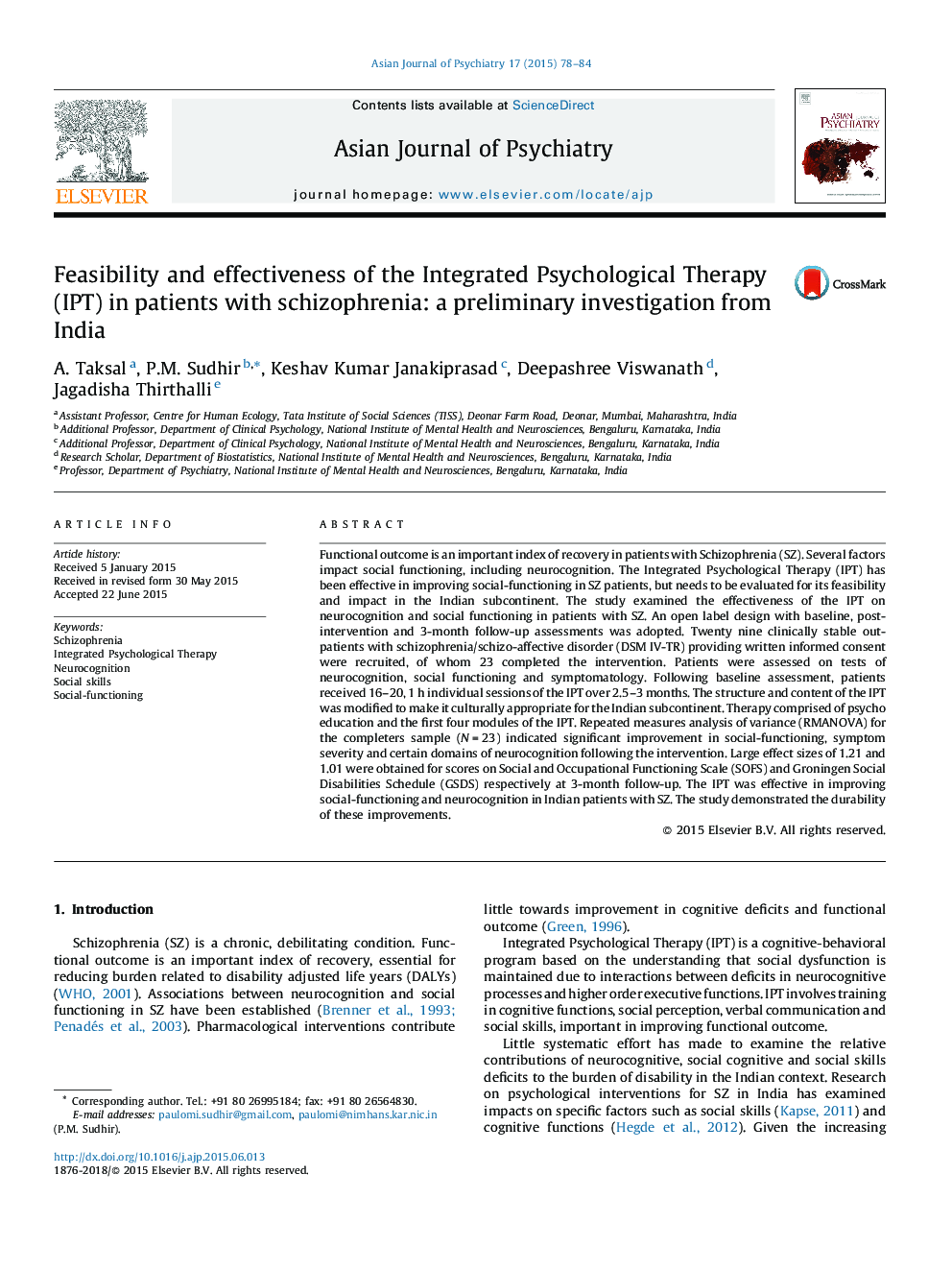| Article ID | Journal | Published Year | Pages | File Type |
|---|---|---|---|---|
| 316978 | Asian Journal of Psychiatry | 2015 | 7 Pages |
•The efficacy of Integrated Psychological Therapy (IPT) in Indian patients has not been investigated.•IPT was adapted and modified to suit the cultural need of patients with schizophrenia.•IPT had significant impact on specific domains of neurocognition and on social functioning at post treatment and follow up.•Large effect sizes were noted on social functioning measures.•Larger controlled trials are needed to further validate these findings.
Functional outcome is an important index of recovery in patients with Schizophrenia (SZ). Several factors impact social functioning, including neurocognition. The Integrated Psychological Therapy (IPT) has been effective in improving social-functioning in SZ patients, but needs to be evaluated for its feasibility and impact in the Indian subcontinent. The study examined the effectiveness of the IPT on neurocognition and social functioning in patients with SZ. An open label design with baseline, post-intervention and 3-month follow-up assessments was adopted. Twenty nine clinically stable out-patients with schizophrenia/schizo-affective disorder (DSM IV-TR) providing written informed consent were recruited, of whom 23 completed the intervention. Patients were assessed on tests of neurocognition, social functioning and symptomatology. Following baseline assessment, patients received 16–20, 1 h individual sessions of the IPT over 2.5–3 months. The structure and content of the IPT was modified to make it culturally appropriate for the Indian subcontinent. Therapy comprised of psycho education and the first four modules of the IPT. Repeated measures analysis of variance (RMANOVA) for the completers sample (N = 23) indicated significant improvement in social-functioning, symptom severity and certain domains of neurocognition following the intervention. Large effect sizes of 1.21 and 1.01 were obtained for scores on Social and Occupational Functioning Scale (SOFS) and Groningen Social Disabilities Schedule (GSDS) respectively at 3-month follow-up. The IPT was effective in improving social-functioning and neurocognition in Indian patients with SZ. The study demonstrated the durability of these improvements.
